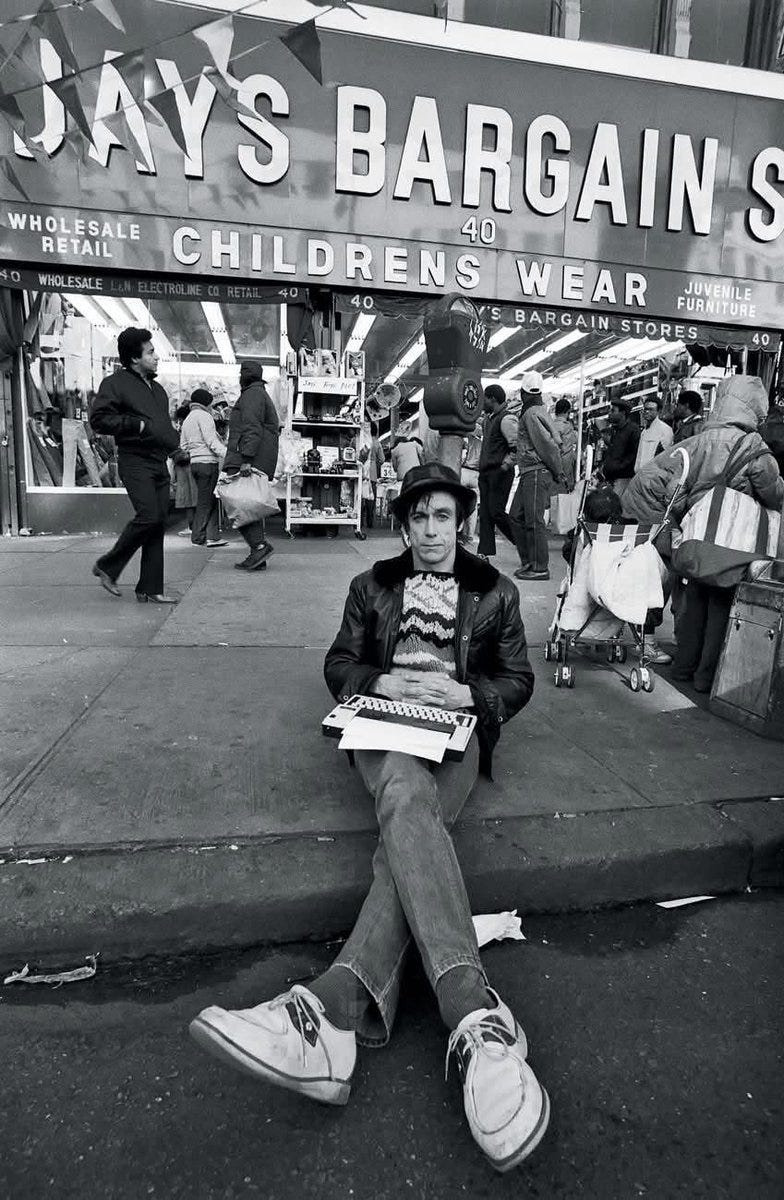The deadliest terror
After Manchester – after Jews were attacked and killed while at prayer, on the holiest day of their religious calendar – after that, didn’t you wonder? Didn’t you ask yourself?
I did. I wondered: out of all the monstrous acts of terror now happening in the West with mind-numbing regularity, who is behind most of them? What homicidal ideology, more than the others, is motivating the killers of innocents?
In Britain, analyst Andrew Fox had a clear answer, hours after a man named “Jihad” – that was his actual name, folks, that was the name his parents gave to him, and no one in Britain’s police or intelligence agencies apparently found that even passingly worrisome – tried to kill Jews with his car and then succeeded with a knife. “Jihad.”
Andrew is a remarkable person, a former Airborne officer and now a PhD student of jihads, in Gaza and Ukraine. You should follow him.
Here is what Andrew wrote:
“Fatal terror attacks in the UK since 1st January 2000.
Total killed: 109.
Killed by Islamist terrorists: 96 (+2 unconfirmed).
Please walk me through how people waving British flags, the ‘far right,’ and ‘divisiveness’ are the issues the government is most worried about.”
That is a deeply disturbing statistic. Reading that – and recalling how, here in Canada, we are so often similarly scolded by Ottawa and the CBC and sometimes the Toronto Star – I wanted to know: is the greater threat coming from far-Right terrorists, or Islamist terrorists? Is the situation in North America similar to that of the United Kingdom?
Or, is it like official Ottawa always says: the monsters likeliest to kill you are found in the likes of the Aryan Nations or the Hammerskins or Atomwaffen or one of their variants.
I’ve written books about terrorism on the far Left and on the far Right, and I honestly wasn’t sure. The refrain from Ottawa is often relentless: the bigger threat, they intone, is on the far Right. Not the Islamists.
[To read more, subscribe here]
Sun Media panel: has the Liberal Party abandoned Israel?
Start-of-October bits and pieces
In Nashua, New Hampshire; in Minneapolis; in Boulder, Colorado; in Washington, D.C. In those places, where Jews were murdered, the killers yelled: “Free Palestine.”
In Manchester, where two are known to be dead this morning, we don’t know if the killer did likewise. But he killed Jews at a synagogue, on Yom Kippur – the holiest day of the year in Judaism.
So: have any killings taken place, anywhere, where the killer yelled: “Am Yisrael Chai”?
That we know the answer to. The answer is no.
**
1. Hamas won’t accept the deal. Why? Because war – and the resulting loss of innocent Palestinian lives – is their only strategy.
2. In Israel, people want the war over, hostages home, Gaza demilitarized, Hamas gone, Bibi retired.
Point two won’t happen because of point one.
**
This past week saw another Truth and Reconciliation day. As a Dad to an Indigenous girl, I say to residential school deniers: stop with your sophistry about graves. Stop. Thousands of Indigenous kids were taken from their parents and terribly abused. That’s the truth. So, reconcile.

**
This was an emasculation of Israel’s Prime Minister, and I suspect everyone in Israel knows it.

**
My friend Guy Goldstein, @revenuepath, has the same view as me: Trump’s new peace plan is essentially pre-Balfour British rule, with minor differences.
The bottom line is that it implicitly acknowledges Palestinians are incapable of stable governance. Also bottom line: Hamas will reject it. And the “ceasefire now” and “Free Palestine” cabal won’t say fuck all when Hamas does that.
**
Nigel Wright’s sudden passing is a shock. Here is the piece I wrote about the tragic loss of a good man.
I don’t know if he had it, and I don’t know if they give it, but he deserves the Order of Canada.
**
This will be news to Canadian Jews. “Poilievre claims Christians ‘may be the number one’ victims of hate-based violence.”
**
Finally found it. It’s the Mats LP they never released. 49:00 by Paul Westerberg on SoundCloud.
**
Iggy, 1984.

**
These Project Ontario folks – some of whom are friends – need to remember Ontario is a huge province and that ideological, doctrinaire approaches simply won’t work. Doug Ford knows that.
Also: inviting Jivani is a mistake. That guy has a pathological hatred of Ford. Bad look.
**
Brad Bradford is the guy who should be mayor of Toronto. He’s confirmed his name will be on the ballot next year. Why?
• he represents change
• he’s an ethical guy and scandal-free
• he’s young and energetic
• he’s an urban planner and has a plan
• he’s a uniter – he doesn’t divide communities
• he’s got a record of success in his ward
• he’s the best communicator at City Hall
• he’s a centrist
• he wants to fix a city that has become dirty, dangerous and dysfunctional
• he started losing his hair and leaned into it and has this cool The Rock thing happening
**
Watching from a distance, it seems that the only Democrat with the balls to consistently and effectively oppose Trump is Gavin Newsom. On that basis alone, he must be the nominee.
**
Maybe it’s just me, but I think cheering for the side that kidnaps babies is a really bad look.
**
Season ender of Star Trek Strange New Worlds: meh. Bore more than a faint resemblance to City on the Edge of Forever, but lacked any of that classic’s emotional impact or coherence. Harlan Ellison, wherever he is, is unamused.
**
SWEET JESUS JOEY FARTED I THINK SINÉAD IS DEAD

Nigel Wright, RIP
Nigel Wright and I belonged to opposing political parties. We had differing views about politics. We didn’t move in the same circles.
And, full disclosure: my ex-wife was Wright’s partner for many years. They met in the office of Prime Minister Brian Mulroney.
Nigel and I didn’t socialize, me being a hardcore Alberta Liberal, and him being a hardcore Ontario Conservative. We weren’t friends, per se.
So, I did not ask my wife-to-be much about him. But, eventually, I learned a few things. A picture emerged.
Nigel Wright was adopted and brought up in a loving, good family. His parents were not wealthy, and Wright worked very hard for everything he got. He was a deeply religious Anglican who, for a time, contemplated the priesthood.
He devoted himself to his studies and charitable causes, his faith and — almost as much — the Conservative party.
As a young man, Wright conquered Bay St. – as a lawyer, as a dealmaker. He even became a millionaire at a very young age. But blue Tory blood ran through his veins — and there are only a handful of unelected people in this country who gave as much to conservative causes. Fundraising, policy, organization: Nigel Wright did it all.
He was successful, he was physically fit, he was – as far as I know – exceedingly happy and healthy. Which is what makes his sudden death Tuesday such a terrible shock. It is a huge loss for his party, for his employer Onex, and for the country.
Said Gerry Schwartz, Onex’s chairman and Nigel’s mentor: “Nigel was a remarkably astute investor, an outstanding leader and an even more exceptional individual. His professional and personal achievements may seem at odds with a man who was so humble and selfless with his time and resources. His passing is a loss not just for Onex but for anyone who had the privilege to know him.”
Nigel worked in Ottawa as Prime Minister Stephen Harper’s Chief of Staff, where he was admired widely – including by those of us on the other side of the aisle. He left Ottawa, as so many of us do, disappointed by what we experienced there. So, he returned to Onex and the private sector and flourished.
He should be remembered for what he achieved on the Hill – not for anything else. The last time we spoke, that is what I said to him. He thanked me.
Nigel Wright was one of those names you hear about – one of the political and business advisors who does not seek the limelight, and who does so much good, selflessly.
Nigel Wright did good. He was a good and decent man. And the country is diminished by this terrible and sad loss.
Truth and reconciliation
On Truth and Reconciliation day – as a Dad to an Indigenous girl – I say to residential school deniers: stop with your sophistry about graves. Stop. Thousands of Indigenous kids were taken from their parents and terribly abused. That’s the truth. So, reconcile.

Palestine is a state – a state that sponsors terrorism
Palestine is a state now formally recognized by Canada.
Is it a state that sponsors terrorism? And what should happen, if it is?
The key section is tucked into a little-known federal statue, the State Immunity Act. In section 6.1(2), Parliament has decreed that cabinet may “set out the name of a foreign state if, [cabinet] is satisfied that there are reasonable grounds to believe that the foreign state supported or supports terrorism.”
When that happens, foreign states – which are always protected from prosecution and lawsuits in Canada – loses their immunity. They can then be prosecuted criminally, or sued civilly. So, Palestine could be taken to court, by governments or (significantly) citizens.
Thus, the key question: does Palestine sponsor terrorism?
“Terrorism,” in Canada’s Criminal Code, is defined as doing something for “a political, religious or ideological purpose, objective or cause,” or doing it with the intention of intimidating people – and/or causing death or injury or property damage. Canadians don’t need to be the terrorist’s targets.
On October 7, 2023, however, Canadians were. Canadians Ben Mizrahi, Vivian Silver, Judih Weinstein Haggai, Adi Vital-Kaploun, Alexandre Look, Neta Epstein, Shir Georgy and Tiferet Lapidot all were all murdered by Palestinian terrorists on that day. Many more Canadians were caused bodily harm.
So, (a) Palestine is a state, and (b) Palestinians engaged in acts of terror against Canadians. Those are the facts. One key question remains: should the state of Palestine be prosecuted or sued for being a sponsor of terrorism?
Secure Canada was founded by families of 9/11 victims, Jewish and not. It regularly brings together an international network of counter-extremism experts, lawyers, policy analysts to combat extremism and terrorism. It also works with human rights and Muslim groups – including the Global Imams Council – and publishes studies about terrorism.
Secure Canada’s most-recent paper should be read very, very carefully by those who work in the office of the Prime Minister and down the street at Global Affairs. Because it methodically and convincingly makes the case that Palestine is, in fact, a state sponsor of terrorism.
[To read more, subscribe here]
KINSELLACAST 381: Lilley and Mulroney – plus amazing tunes from Sharp Pins, RMFC, Wet Leg, Lovely Eggs, Cheap Trick!
End Jew hatred in our schools – here’s how
In recent days, plenty has been happening in respect of the Israel-Hamas war. The Middle Eastern conflict is a firehose of news, with several major developments flooding onto newspaper front pages every morning.
Notably, there has been the recent monstrous decision of Canada, and others, to officially recognize Palestine, a “state” run by a designated terrorist entity. That move has (a) shown Hamas that terrorism pays dividends (b) persuaded Israel that compromise is a waste of time, ramping up settlements in the West Bank and (c) prompted U.S. president Donald Trump to warn that Canada has jeopardized trade negotiations by legitimizing a terror group.
At the local level, too, plenty of bad stuff has been happening. On university, college and school campuses in particular. Since October 7, 2023, educational institutions have witnessed an explosion in Jew hatred – in Canada, and around Western democracy.
Just on Thursday alone, there have been these reports:
• Western University has abandoned an investigation into a secret online group chat where its “pro-Palestinian” students promoted Hitler, discussed making a “yahoodi” (Jew) list, and declared that “Allah will burn” Jews.
• Concordia University’s student handbook no longer recognizes Christmas or Canada Day – but highlights pro-Palestinian and far-Left milestones, and has a Palestinian flag on its cover.
• Metropolitan University saw masked pro-Palestinian types violently attempt to disrupt a speech by the federal minister for artificial intelligence – who happens to be a Jew.
Education has become a minefield for Canadian Jews and those who support them. So, a group called End Jew Hatred has launched a campaign to, as they put it, “end hatred in education.”
The civil rights campaign was launched in New York last week, and is aimed at confronting “rising antisemitism, radicalization, and ideological indoctrination” in schools. The Canadian arm of the campaign will start in the coming days.
[To read more, subscribe here]

